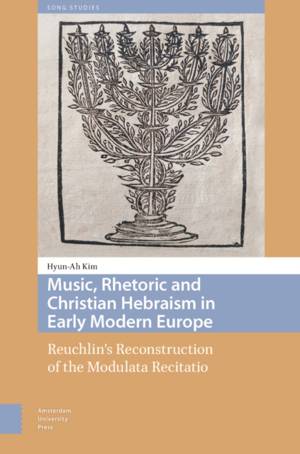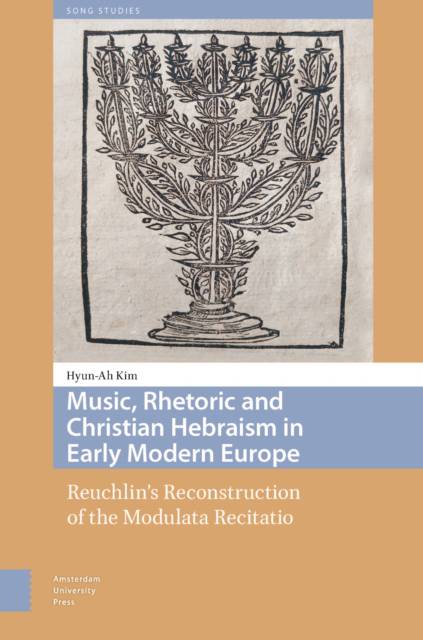
- Afhalen na 1 uur in een winkel met voorraad
- Gratis thuislevering in België vanaf € 30
- Ruim aanbod met 7 miljoen producten
- Afhalen na 1 uur in een winkel met voorraad
- Gratis thuislevering in België vanaf € 30
- Ruim aanbod met 7 miljoen producten
Music, Rhetoric and Christian Hebraism in Early Modern Europe
Reuchlin's Reconstruction of the Modulata Recitatio
Hyun-Ah KimOmschrijving
This book presents the first in-depth exploration of the relationship between music, rhetoric and Christian Hebraism, by re-appraising the significance of the first German humanist Johannes Reuchlin's study of Kabbalah and cantillation in the light of Renaissance rhetoric. Few studies have investigated how Renaissance humanists learned Hebrew language for the delivery (pronuntiatio) of the Hebrew Bible as an aural-oral tradition. Hyun-Ah Kim examines the way in which 'grammarian-philosopher' Reuchlin reconstructed the modulata recitatio of the Hebrew Bible and its underlying intellectual foundation. Consequently, Kim demonstrates the hitherto neglected Hebraic aspect of Renaissance rhetoric and its mystical implications that played a vital role in shaping a new theoretical framework for the 'art of accented singing, ' an art which has changed European musical culture ever since. Music, Rhetoric and Christian Hebraism in Early Modern Europe elucidates why this nexus is essential for understanding the integral relationship between music, language and theological philosophy.
Specificaties
Betrokkenen
- Auteur(s):
- Uitgeverij:
Inhoud
- Aantal bladzijden:
- 406
- Taal:
- Engels
- Reeks:
Eigenschappen
- Productcode (EAN):
- 9789048565108
- Verschijningsdatum:
- 10/09/2025
- Uitvoering:
- Hardcover
- Formaat:
- Genaaid
- Afmetingen:
- 156 mm x 236 mm
- Gewicht:
- 798 g

Alleen bij Standaard Boekhandel
Beoordelingen
We publiceren alleen reviews die voldoen aan de voorwaarden voor reviews. Bekijk onze voorwaarden voor reviews.









